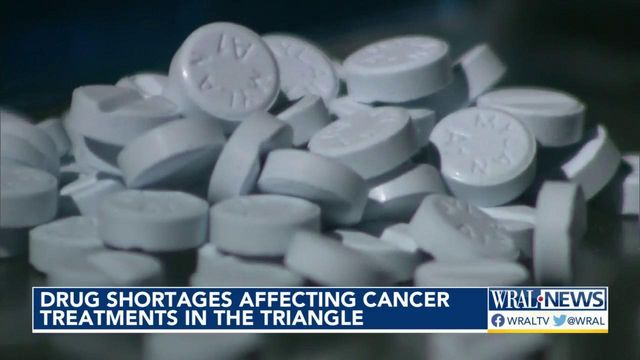Drug shortages raise concerns for patient care in NC
Health care providers in central North Carolina said they’re monitoring drug shortages across the country to avoid their potential impact on patient care.
The American Society of Health System Pharmacists reports 243 different shortages, including chemotherapy drugs, antibiotics and weight-loss drugs.
“I’m very concerned about the drug shortages,” said East Carolina University Professor of Microbiology and Immunology Dr. Rachel Roper.
Roper said she is mostly worried about the impacts on cancer patients.
A report released this week by the IQVIA Institute says oncology has seen a growing number of shortages since 2020.
“It’s a real problem for patients that are on one-drug regimen and are being treated for cancer, and suddenly, they can’t find the drug,” Roper said. “And, there can be worse side effects or the [other] drugs might not be as effective.”
WRAL News asked WakeMed Health what they’ve seen from the shortages.
“We have seen some of the oncology medications on shortage, and WakeMed has a pharmacy buyer that is dedicated to inventory, procurement, and shortage management for oncology medications,” a WakeMed spokesperson said.
Providers at UNC Health say they aren’t seeing any major issues currently, but "we remain vigilant and work closely with our suppliers to ensure our patients have the medications they need."
“I think the U.S. really needs to look at our drug supply chain and what we can do to increase the supply of drugs made in the U.S.,” Roper said.
Experts pin the shortages on demand, along with manufacturing issues and supply-chain issues.
Medical experts like Roper are calling for more intervention on the federal level from the U.S. Food and Drug Administration to help bolster supply.











